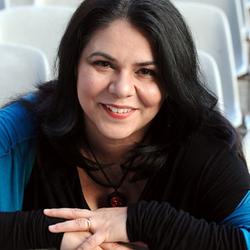 |
|
| Michela Murgia | |
Italian novelist, intellectual, and civil rights campaigner Michela Murgia, who "was a voice for minorities and a lightning rod for political debate" while garnering respect even from a prime minister whose policies she opposed, died August 10, the New York Times reported. She was 51. Murgia burst onto the scene nearly two decades ago with her first novel about her experience working in a call center.
She was an outspoken critic of the country's rightward shift "at a time when its left-wing parties appeared to have lost their voice, and a feminist and civil rights champion urging acceptance of nontraditional family configurations in a nation in which the governing parties have promoted a more conservative vision," the Times wrote.
Even some who opposed her views, including Prime Minister Giorgia Meloni, offered tributes, praising Murgia as "a woman who fought to defend her ideas, albeit notoriously different from mine, for which I have great respect."
Winner of the Premio Campiello literary prize in 2010, Murgia was a playwright, essayist, and columnist, the Guardian reported. She made her literary debut in 2006 with the novel Il Mondo Deve Sapere (The World Must Know), a satire about exploitation in a telemarketing call center that was made into a play and later adapted into the 2008 film Tutta la Vita Davanti (Whole Life Ahead) by Paolo Virzì. Her best-known book, Accabadora (2009), about euthanasia and adoption, earned many awards.
Known for her campaigns for LGBTQ+ rights and euthanasia, Murgia publicly revealed a few months ago that she had been diagnosed with stage four kidney cancer and had decided to speak openly about her illness, continuing to write articles and appear at public debates, the Guardian noted.
In 2022, she wrote God Save the Queer, an essay in which she reflected on the possibility of being a feminist and a Christian: "I would like to understand, as a feminist, if the Christian faith is really in contradiction with our desire for an inclusive and non-patriarchal world, or if instead it can't even show itself as an ally. As a Christian, I trust that faith also needs a feminist and queer perspective."
In July, she announced that she had married actor and director Lorenzo Terenzi "in articulo mortis," Latin for "at the point of death." The New York Times wrote that "under Italian law, her blood relatives would have inherited her property and been responsible for decisions about her unpublished work and her legacy. Although she was not in conflict with her family, marrying Mr. Terenzi ensured that her will would be observed, friends said."

